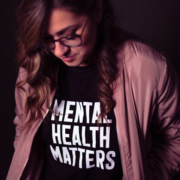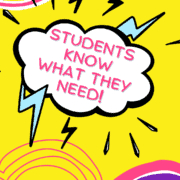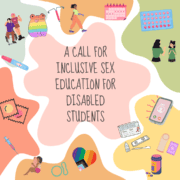Content warning: This blog includes descriptions of sexual assault reports.
Sexual assault cases are extremely difficult to investigate and prosecute in our existing criminal justice system. Reporting a sexual assault takes incredible courage and resilience. Despite this, sexual assault survivors are often the only victims of crimes who are treated as suspects. People who report sexual violence can face professional and personal repercussions, re-traumatization, disbelief, rejection, financial burdens, and physical, emotional, and mental discomfort. Lack of training in law enforcement often leads to misconceptions about crimes involving sexual assault and trauma, often leading to doubts about survivors’ stories. Many people both within and outside criminal justice fields assume that false reports are a regular occurrence.
We’ll attempt to break down those incorrect assumptions by discussing research around false reporting, and using SARC’s 40+ years of experience working with sexual assault survivors.
How many reports are false?
Multiple studies show that false reporting is very uncommon, and some demonstrate it may be even less common than older research suggests. The following information is compiled in an article by Kim Lonsway (2010). The Home Office in the United Kingdom found that only 4% of sexual assaults reported to law enforcement are suspected or found to be false. Research conducted in the United States and Europe show similar rates, between 2% and 6%. Recent U.S. studies by Dr. David Lisak support a false reporting rate of 2%, similar to findings by the Uniform Crime Report (UCR) done by the Federal Bureau of Investigation.
Even still, numbers from research cannot be taken at face value, as some studies use vague definitions for what constitutes a “false report.” The FBI’s UCR report has historically been one of the most common cited reference points for false reporting data in the United States, despite the flaws in the way it counts false reports.
“Unfounded,” “baseless,” “false” – What’s the difference?
The data in the UCR was provided by law enforcement agencies across the country. The report marks cases as ‘cleared’ in three ways: by arrest, by exception, and as unfounded. “Unfounded” sexual assault cases are not always the same as false reports. An “unfounded” case can be one of two things: a false report, or a baseless report. A “baseless” report is presumed truthful, but does not have all of the factors to charge as a crime. A “false” report is one that should be proved to be untrue through concrete evidence, not simply because of doubt, suspicion, or uncertainty from law enforcement or anyone else.
Baseless reports can indicate that investigators determined there was not enough evidence to pursue an investigation. For example, lack of forensic evidence, or difficulty concretely proving that an act was non-consensual. A baseless report can also indicate that the reported act of sexual violence did not meet the criteria for a criminal charge, such as having an element of “force.”
Why is this frustrating? In our experience working with survivors, most sexual assaults do not leave physical injuries, as coercion and manipulation are some of the most common tactics that offenders use, in lieu of overt force. Offenders often claim that the assault was a consensual sexual encounter, a claim difficult to disprove without concrete evidence. These characteristics of sexual violence, and many others, help explain how cases might be marked as unfounded without being false.
How does this complicate false reporting data? The UCR counts all reports marks as “unfounded” as false, whether they are baseless (meaning the assault likely still occurred) or actually proven to be untrue. This suggests that even the low false reporting numbers the UCR reports may be partially inflated.
What Makes a Report “Suspicious”?
What causes a professional, friend, or family member to doubt someone’s experience of sexual assault? Research laid out in the Lonsway article indicates that the most common characteristics that lead to people to think a report is false are delayed reporting, alcohol or drug use during the event, inconsistencies or omissions in statements, and/or if the survivor did not physically resist “enough.” In actuality, most sexual assault cases include one or more of these factors. In short, the reports that draw the most scrutiny are often the reports that are most likely to be true.
Let’s break down these elements of suspicion. Few survivors report right away. Just some of the reasons for this that we have heard from survivors include feelings of guilt, anxiety, fear, or shock, among others. Reporting is not always safe or accessible to everyone. Inconsistencies in survivors’ statements are common indicators of trauma, and the brain’s struggle to encode and recall memories of traumatic events. Additionally, survivors may initially omit pieces of their story if they fear they may face shame, victim-blaming, or other consequences. It is not uncommon, for example, that a teen may not want to be punished for drinking under age, or an adult may not want to get in trouble for use of illicit substances. Finally, the majority of survivors report some level of “freezing” or tonic immobility during their assault, meaning that their body froze in order to survive and cope with what was happening. Freezing is a very common instinctual response, and often leads to shame and doubt from investigators and others who question why survivors did not “fight back.”
In reality, persons filing false reports are actually less likely to admit to potentially illegal, embarrassing, or questionable behavior, such as drug or alcohol use. False reports are more likely to sound like a “stereotypical rape” — usually involving a stranger, with a weapon, outside, where the survivor fought back, sustained injuries, and reported immediately. Additionally, more often than not false reports did not name a suspect, debunking the assumption that reports frequently made out of malice in an attempt to malign the offender. False reporting may address a need the individual is lacking elsewhere, such as emotional support systems, feeling cared for, access to mental health resources, and much more.
Why Is It Important to Believe Survivors?
Obviously, there are many reasons to believe and trust survivors. Research on sexual assault perpetrators shows that the majority of perpetrators are serial offenders, or someone who has committed more than one act of sexual assault. The less accountable our institutions hold offenders, the more opportunities they afford offenders to cause harm to others.
Beyond this, is the harm that invalidation and blame can cause people who survive sexual trauma. Treating survivors with suspicion serves only to re-victimize them. Persons that come forward seeking help following a sexual assault should be given assistance and support, not mistrust and skepticism. When survivors are met with support and validation, it can lessen the burden of their trauma and improve their ability to move forward and begin to heal.
Some initiatives, like Start By Believing, aim to educate people on the impact of believing survivors from the very beginning. To address these issues in our community, SARC currently offers a half day and full day of training to law enforcement agencies in Washington County. Our goal is that through ongoing training and feedback, the institutions in our community can make reporting a more accessible and safe option for survivors who choose to do so.
If you are interested in offering training for your workplace or school, please contact us at sarc[at]sarcoregon.org or 503-626-9100.
Check out the resources below that Frankie, our intern, used to write this blog, and ask your local law enforcement agencies if they have received training on sexual assault response.
Overview on false reporting from the National Sexual Violence Resource Center: https://www.nsvrc.org/sites/default/files/Publications_NSVRC_Overview_False-Reporting.pdf
More information on the difference between unfounded and baseless reports from End Violence Against Women International:
https://www.evawintl.org/Library/DocumentLibraryHandler.ashx?id=56
News Article from the United Kingdom on the realities of false reporting:
http://theconversation.com/heres-the-truth-about-false-accusations-of-sexual-violence-88049
More information on false reporting in Europe:
http://journals.sagepub.com/doi/abs/10.1177/1077801210387748?url_ver=Z39.88-2003&rfr_id=ori:rid:crossref.org&rfr_dat=cr_pub%3dpubmed
Most information for this article are drawn from this excellent piece by Kim Lonsway:
Lonsway, K. (2010). Trying to Move the Elephant in the Living Room: Responding to the Challenge of False Rape Reports. Symposium on False Allegations of Rape, 1356-1371. Retrieved May 15, 2018.http://journals.sagepub.com/doi/abs/10.1177/1077801210387750
Image by startbelieving.org.





